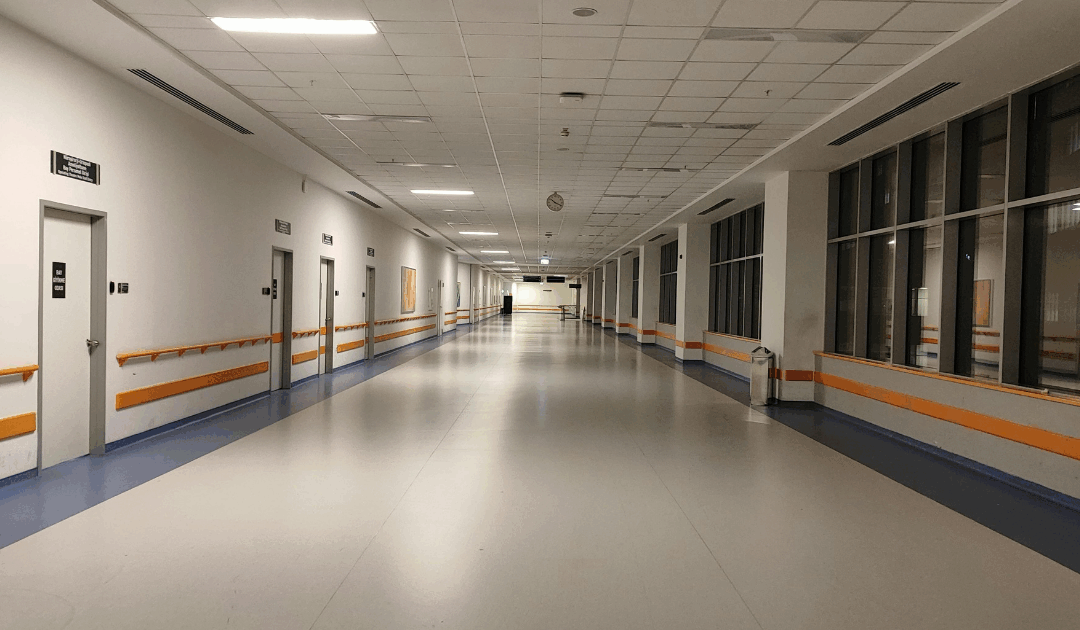READY TO GET STARTED?
REQUEST A FREE ESTIMATE
Fill out the form below or call (888) 466-7849 for a free, no-obligation estimate.

Maintaining a pest-free environment is essential for any business. It protects your reputation, ensures compliance with health regulations, and provides a comfortable atmosphere for employees and customers. For modern businesses, the method of pest control is just as important as the result. An eco-friendly approach not only addresses pest issues effectively but also aligns with corporate responsibility and customer expectations. Choosing the right eco-friendly pest control service is a critical decision that impacts your operations, brand image, and bottom line. With a growing number of providers claiming to be “green,” it can be challenging to identify a partner that offers genuine, effective, and environmentally conscious solutions. This guide will walk you through the key considerations for selecting a commercial pest control service that meets your business’s specific needs.
Opting for an eco-friendly pest management strategy, often called Integrated Pest Management (IPM), offers significant advantages for a commercial property. IPM is a holistic approach that prioritizes long-term prevention by understanding pest biology and behavior. It focuses on minimizing reliance on chemical applications by using exclusion, sanitation, and monitoring as the first lines of defense.
Making an informed decision requires looking beyond marketing claims. A truly professional eco-friendly service will be transparent about its methods, experience, and qualifications.
Commercial pest control is not a one-size-fits-all service. A provider with experience in your specific industry will understand the unique challenges and regulatory requirements you face. Whether you manage a restaurant, a healthcare facility, a warehouse, or an office building, your provider should be able to develop a customized IPM plan tailored to your environment. Ask for case studies or references from businesses similar to yours.
Inquire about the specific methods and products the company uses. A genuine eco-friendly provider will emphasize a multi-faceted approach.
Professional commercial pest management includes detailed documentation. Your provider should offer clear, consistent reporting after each service visit. This documentation should outline what was observed, what actions were taken, and what steps your business needs to take to support the prevention plan. This is crucial for tracking progress and demonstrating due diligence for health inspections.
Choosing an eco-friendly pest control service is about finding a long-term partner dedicated to protecting your business. An effective IPM program is a collaborative effort between your staff and the pest management provider. The right partner will not only treat existing problems but will also educate your team on best practices for sanitation and maintenance to prevent future issues.
If your business is ready to implement a responsible and effective pest management program, it is time to consult with an expert. A professional commercial pest control service can conduct a thorough assessment of your property and develop a customized, eco-friendly plan that protects your facility, reputation, and peace of mind. Contact a specialist today to learn how an Integrated Pest Management program can be tailored to your business needs.

December brings unique challenges for business owners. As temperatures drop, rodents like mice and rats move indoors in search of warmth and food, making commercial spaces a prime target for infestations. When signs of activity appear, the question quickly becomes: handle it yourself or call a professional commercial exterminator?
For businesses, pest issues are more than a nuisance — they threaten reputation, operations, and compliance. Choosing between DIY methods and professional pest control services is an important decision.
A rodent problem in a commercial setting can impact customers, employees, and your brand image. Rodents contaminate inventory, damage wiring and structures, and create unsanitary conditions. In industries like food service, hospitality, and healthcare, even one sighting can lead to failed inspections, bad reviews, and lost trust.
Many business owners start with DIY methods, such as traps or baits, for a quick and inexpensive fix. While this can offer short-term relief, there are clear limitations.
Potential Positives
Key Drawbacks
A licensed commercial exterminator offers a strategic, long-term solution tailored to your business.
Benefits of Professional Service
DIY solutions may seem cost-effective, but they often provide only temporary relief. A professional commercial exterminator delivers the expertise, strategy, and documentation needed to protect your business long-term.
Don’t let a winter rodent issue threaten your operation or reputation. Schedule a professional inspection this December and keep your business protected year-round with commercial pest control services.

Keeping a medical facility pest-free is crucial for patient health and property protection. Pests can compromise sanitation, damage property, and pose health risks. For healthcare administrators in Atlanta, selecting a provider that prioritizes both effectiveness and environmental responsibility is key. Eco-friendly pest control offers a healthy, targeted solution that meets these needs.
The right provider will understand the unique challenges of medical environments and use strategies that are both compliant and low-impact. This guide explains what to look for to protect your facility, staff, and patients.
Medical facilities house vulnerable populations, making protection a top priority. Eco-friendly methods, like Integrated Pest Management (IPM), minimize chemicals and focus on prevention, monitoring, and targeted treatments to create a healthier indoor environment.
Healthcare facilities are subject to inspections from bodies like the Joint Commission. Pest sightings can lead to failed inspections or citations. Providers using IPM maintain detailed records of services and pest activity, helping your facility demonstrate compliance during audits.
Select a provider experienced in medical facilities who understands sensitive areas like kitchens, patient rooms, and waste disposal sites. Technicians should work efficiently and discreetly, avoiding disruption to patient care.
Ask providers to outline their IPM program. Key elements include:
Ensure the company and technicians hold the necessary Georgia licenses and insurance. Staff should be trained in both pest control and healthcare protocols, including HIPAA and infection control, ensuring reliable and secure service.
Eco-friendly pest control safeguards patient care, regulatory compliance, and your facility’s reputation. Providers with healthcare expertise, a strong IPM plan, and thorough documentation provide the most effective, secure, and responsible solutions.
Don’t wait for pests to become a problem. Contact a certified commercial pest control expert today for a tailored consultation and a plan designed for your facility’s unique needs.

For owners and managers of commercial properties, maintaining a clean, healthy, and pest-free environment is essential. Pest infestations can disrupt operations, harm your reputation, and result in significant financial loss. Green pest control offers a responsible, effective solution that aligns with sustainability goals and modern business practices.
Rooted in Integrated Pest Management (IPM), this approach protects tenants, customers, and your brand. This guide explains why a sustainable pest management program is critical and what to look for in a professional commercial pest control provider.
Sustainability is a core business value that influences consumer and tenant decisions. Implementing green pest control demonstrates environmental stewardship and concern for public health. This responsible choice enhances your brand, appeals to eco-conscious clients and tenants, and differentiates your business in a competitive market.
Green pest control reduces conventional chemical treatments, improving indoor air quality and reducing occupant exposure. In multi-tenant buildings, offices, and retail spaces, this approach creates a healthier, more comfortable environment for employees, customers, and visitors while reducing potential complaints and liability.
A sustainable strategy focuses on prevention rather than reacting to pest sightings. IPM identifies and eliminates root causes, including entry points, moisture, sanitation gaps, and habitats. Addressing these conditions results in long-lasting results and can reduce costs from repeated infestations and property damage.
Ask potential providers about their IPM program. A reputable partner emphasizes inspections, continuous monitoring, and non-chemical methods such as structural exclusion, habitat modification, and sanitation consulting. Chemicals are used only when necessary and applied in a targeted way.
Commercial properties vary from offices to warehouses and retail centers, each with unique pest challenges. Providers should have experience with different commercial clients, understand how to work discreetly, schedule services to minimize disruption, and comply with regulations.
A professional provider acts as a strategic partner in maintaining your property’s integrity. Look for transparent documentation of inspections, pest activity, and any materials used. Clear, consistent communication is essential for a successful partnership and demonstrates due diligence during audits.
Adopting green pest control strengthens your brand, supports sustainability goals, and creates a healthier environment for everyone on your property. By focusing on prevention and partnering with an IPM expert, you can achieve long-lasting protection. For a tailored, responsible pest management plan, contact a certified pest control professional today.

Maintaining a clean, pest-free environment is essential for any retail business. A single sighting can harm your reputation, deter customers, and damage inventory. While traditional pest control works, more businesses are turning to sustainable pest control for its effectiveness, environmental responsibility, and alignment with customer expectations.
A sustainable retail pest control strategy goes beyond being “green.” It protects customers, employees, and products while supporting your brand’s commitment to quality and care. This guide explains why sustainability matters and what to look for in a professional partner.
Modern consumers care about environmental and health practices. Adopting sustainable pest control shows responsibility and enhances your brand image. It also reduces broad chemical applications, creating a more pleasant shopping environment and a healthier workplace.
Rodents, cockroaches, and stored product pests can damage inventory and cause financial loss. Rodents gnaw through packaging, while insects can contaminate stock. Sustainable pest control emphasizes proactive exclusion and monitoring to prevent access, offering a more effective solution than reactive treatments.
Sustainable pest control uses Integrated Pest Management (IPM), which focuses on pest biology and behavior to address root causes like entry points, food sources, and harborage. By sealing gaps, improving sanitation, and managing moisture, IPM provides lasting results beyond repeated chemical treatments.
A sustainable provider leads with IPM. Their plan should start with a thorough inspection to identify pest pressures and conducive conditions. Non-chemical solutions should be prioritized, including door sweeps, sealing wall cracks, and improved waste management.
Retail spaces have unique challenges, from high-traffic areas to sensitive storage. Providers should have proven experience, understand how to operate discreetly during business hours, protect merchandise, and address common retail pests like flies, rodents, and ants.
Transparency is key. A professional provider maintains thorough records of service visits, pest activity, and corrective actions. Documentation supports audits and internal quality control. Providers should also communicate regularly with facility managers to report findings and recommend preventative actions.
Sustainable pest control is a strategic investment in your retail business. By focusing on prevention and partnering with an IPM-specialized provider, you create a clean, welcoming environment that protects customers, employees, and inventory. For a tailored, effective pest management plan, contact a certified commercial pest control professional today for a free quote.